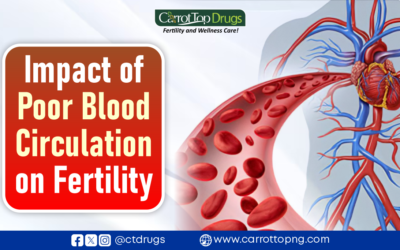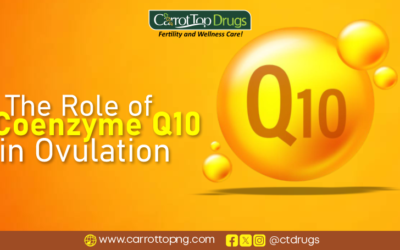Introduction
As parents, we all want the best for our kids. But in the busyness of daily life, we might miss something important – signs that our children lack essential vitamins. Today, let’s explore these subtle hints together, like uncovering a secret message for our kids’ health. In this article, we’d be discussing the signs of vitamin deficiency in children.
Statistics of Vitamin Deficiency in Children
Before looking at the signs of vitamin deficiency in children, let’s see some statistics of vitamin deficiency in children.
These statistics represent the state of children around the world and until something is done, it may only get worse.
Studies revealed that about 140 children are at risk of hearing loss, blindness, illnesses and even death due to vitamin A deficiency. A study in the US revealed that about 50 percent of children between 1 and 5 and 70 percent of children from age 6 to 11 have vitamin D deficiency. Center for Disease Control and Prevention estimated that about 190 million preschool children have vitamin A deficiency.
Vitamin A
Ensuring our children get the right nutrients is a top priority for any parent. One crucial player in this nutrition game is Vitamin A. This vitamin is like a superhero for their eyesight and immune system. But here’s the catch – there are subtle signs that could be red flags for signs of vitamin deficiency in children. Keep an eye out for things like
- trouble seeing in low light (night blindness)
- or frequent infections; these could be the silent whispers of an inadequate Vitamin A intake.
Vitamin B
Let’s embark on a journey through the B vitamins – B1, B2, and B3. These vitamins might seem like a complex code, but fear not, we’re here to decode the mysteries surrounding signs of vitamin deficiency in children.
They are the energy boosters, skin defenders, and brain supporters for your child’s health. A deficiency in these vitamins is seen in
- reduced energy levels in the child,
- skin problems,
- reduced concentration or trouble concentrating.
Vitamin C
In the journey of safeguarding our children’s health, Vitamin C emerges as the guardian of immunity, standing tall with its remarkable immune-boosting prowess. This powerhouse nutrient plays a vital role in ensuring our little ones stay resilient and healthy.
Vitamin C, often found in citrusy delights like oranges and lemons. Vitamin C deficiency is commonly known as scurvy. But, in its deficiency, there are some signs of vitamin deficiency in children that we should look out for.
- Persistent colds and
- slow wound healing
Vitamin D
Children need healthy bones. Sunlight takes center stage as the key player in ensuring optimal vitamin D levels for our children. It is nature’s gift, providing the essential ingredient for sturdy and robust bones.
Sunlight, the natural source of vitamin D, acts as a silent architect in fortifying the foundation of our children’s bone health. Its rays trigger the production of vitamin D in their skin, a process crucial for absorbing calcium and promoting bone strength.
So what are the signs of vitamin deficiency in children?
- Muscle weakness
- Bone pain
Imagine vitamin D as the sunlit conductor, directing a performance of strong, resilient bones for our children. To avoid the pitfalls of deficiency, it’s crucial to watch out for the signs of vitamin deficiency in children that may manifest as fractures or delayed growth. This awareness empowers us as parents to fine-tune their exposure, ensuring a delicate harmony between sunlight and bone health.
Vitamin E
Vitamin E offers a myriad of benefits that contribute to children’s overall health. Think of it as the guardian of their vitality, with its antioxidant prowess playing a crucial role in various aspects, from skin health to immune support.
Vitamin E, often termed the “skin vitamin,” acts as a defender against oxidative stress, promoting healthy skin for our little ones. Its protective benefits extend beyond the surface, contributing to immune support and overall well-being.
Some of the signs of vitamin deficiency in children are:
- skin issues or
- a weakened immune response,
Common Signs of Deficiency
In the intricate tapestry of our child’s health, it’s essential to decipher the common symptoms that might serve as whispers from their body, signaling potential deficiencies in essential vitamins. Recognizing these signs early on can be pivotal in addressing nutritional imbalances and ensuring our little ones thrive. Let’s embark on a journey of understanding and decoding the common symptoms of deficiency that encompass more than just physical exhaustion.
Fatigue
Fatigue is an indicator that our child’s body might be lacking essential elements crucial for energy production. From Vitamin B12 to iron, various deficiencies can manifest in persistent fatigue.
Weakness
Weakness can be one of the common symptoms of deficiency, often rooted in inadequate levels of key vitamins like Vitamin D or magnesium.
Brittle Nails
Deficiencies in biotin, iron, or other essential vitamins can manifest in the texture and strength of their nails.
Impact on Growth: Stunted Growth and Development
Stunted growth and development stand as tangible consequences, underscoring the critical connection between adequate vitamin intake and a child’s physical maturity.
Cognitive Effect
Beyond its visible effects on the body, deficiencies can cast shadows on cognitive function and behavior, shaping the child’s mental well-being.
Addressing Deficiencies: Dietary Sources and Supplements
Striking a delicate balance between natural sources and supplements becomes key in addressing deficiencies effectively. Let’s embark on this exploration, understanding how to nourish your child
Dietary Sources: A Palette of Nutrient-Rich Options
Dietary sources stand as the foundation for providing essential vitamins to your child. From fruits and vegetables to lean proteins and dairy, the variety in their diet plays a pivotal role. By incorporating a diverse range of foods, you ensure that your child receives a spectrum of vitamins, addressing potential deficiencies and promoting a well-rounded nutritional intake.
Supplements
While dietary sources form the cornerstone, supplements serve valuable roles in bridging nutritional gaps. In certain situations, obtaining all necessary vitamins solely from food may prove challenging. Supplements, when used judiciously and under professional guidance, become instrumental in ensuring your child’s nutritional needs are met. Whether it’s Vitamin D during winter months or iron for specific deficiencies, supplements can be tailored to address specific requirements.
Our Evergreen Kidz is a supplement tailored to address vitamin deficiency in children.
Conclusion
In conclusion, addressing deficiencies is a holistic endeavor that combines the richness of dietary sources with the precision of supplements. Nourishing your child comprehensively involves embracing the diverse palette of nutrient-rich foods while judiciously incorporating supplements like Evergreen Kidz as needed. This article is to create awareness, we empower parents to navigate this nourishment journey with wisdom, ensuring your children grow and thrive with a robust foundation of optimal nutrition.
FAQs
Q. How can I ensure my child gets enough vitamin D without excessive sun exposure?
A. To strike a balance, provide short periods of outdoor play and consider vitamin D-rich foods or supplements with your pediatrician’s guidance.
Q. Are vitamin supplements necessary for children with a balanced diet?
A. While a balanced diet is crucial, supplements may be recommended in certain cases. Consult with a healthcare professional for personalized advice.
Q. What are the long-term effects of vitamin deficiencies in children?
A. Long-term effects may include stunted growth, weakened immune system, and cognitive challenges. Early detection and intervention are key.
Q. Can picky eating contribute to vitamin deficiencies in children?
A. Yes, picky eating may limit the variety of nutrients a child receives. Encourage a diverse diet and consult with a nutritionist if needed.
Q. How can parents encourage healthy eating habits in children?
A. Lead by example, make mealtime enjoyable, and involve children in food choices. Positive experiences foster healthy habits.

















